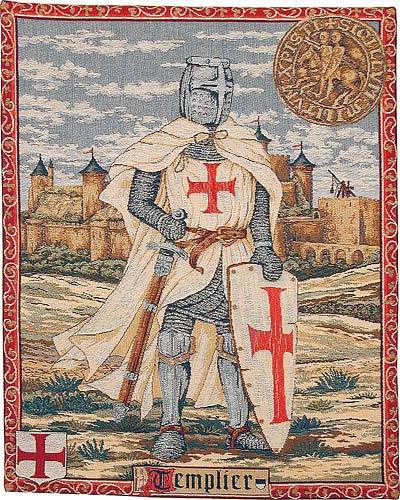Happy Friday the 13th 2023
Knights Templar and Friday the 13th.
The most intriguing origin story of Friday the 13th (my favorite).
The Poor Fellow-Soldiers of Christ and of the Temple of Solomon (Latin: Pauperes commilitones Christi Templique Salomonici), also known as the Order of Solomon’s Temple (French: Ordre du Temple or Templiers), the Knights Templar or simply as Templars, was a Catholic military order recognised in 1139 by papal bull Omne Datum Optimum of the Holy See. The order was founded in 1119 and active from about 1129 to 1312
At dawn on Friday, 13 October 1307 (a date sometimes linked with the origin of the Friday the 13th superstition) King Philip IV ordered de Molay and scores of other French Templars to be simultaneously arrested. The arrest warrant started with the phrase: “Dieu n’est pas content, nous avons des ennemis de la foi dans le Royaume” [“God is not pleased. We have enemies of the faith in the kingdom”]. Claims were made that during Templar admissions ceremonies, recruits were forced to spit on the Cross, deny Christ, and engage in indecent kissing; brethren were also accused of worshipping idols, and the order was said to have encouraged homosexual practices. The Templars were charged with numerous other offences such as financial corruption, fraud, and secrecy. Many of the accused confessed to these charges under torture, and their confessions, even though obtained under duress, caused a scandal in Paris. The prisoners were coerced to confess that they had spat on the Cross: “Moi, Raymond de La Fère, 21 ans, reconnais que [j’ai] craché trois fois sur la Croix, mais de bouche et pas de cœur” (free translation: “I, Raymond de La Fère, 21 years old, admit that I have spat three times on the Cross, but only from my mouth and not from my heart”). The Templars were accused of idolatry and were suspected of worshipping either a figure known as Baphomet or a mummified severed head they recovered, amongst other artefacts, at their original headquarters on the Temple Mount that many scholars theorise might have been that of John the Baptist, among other things.
